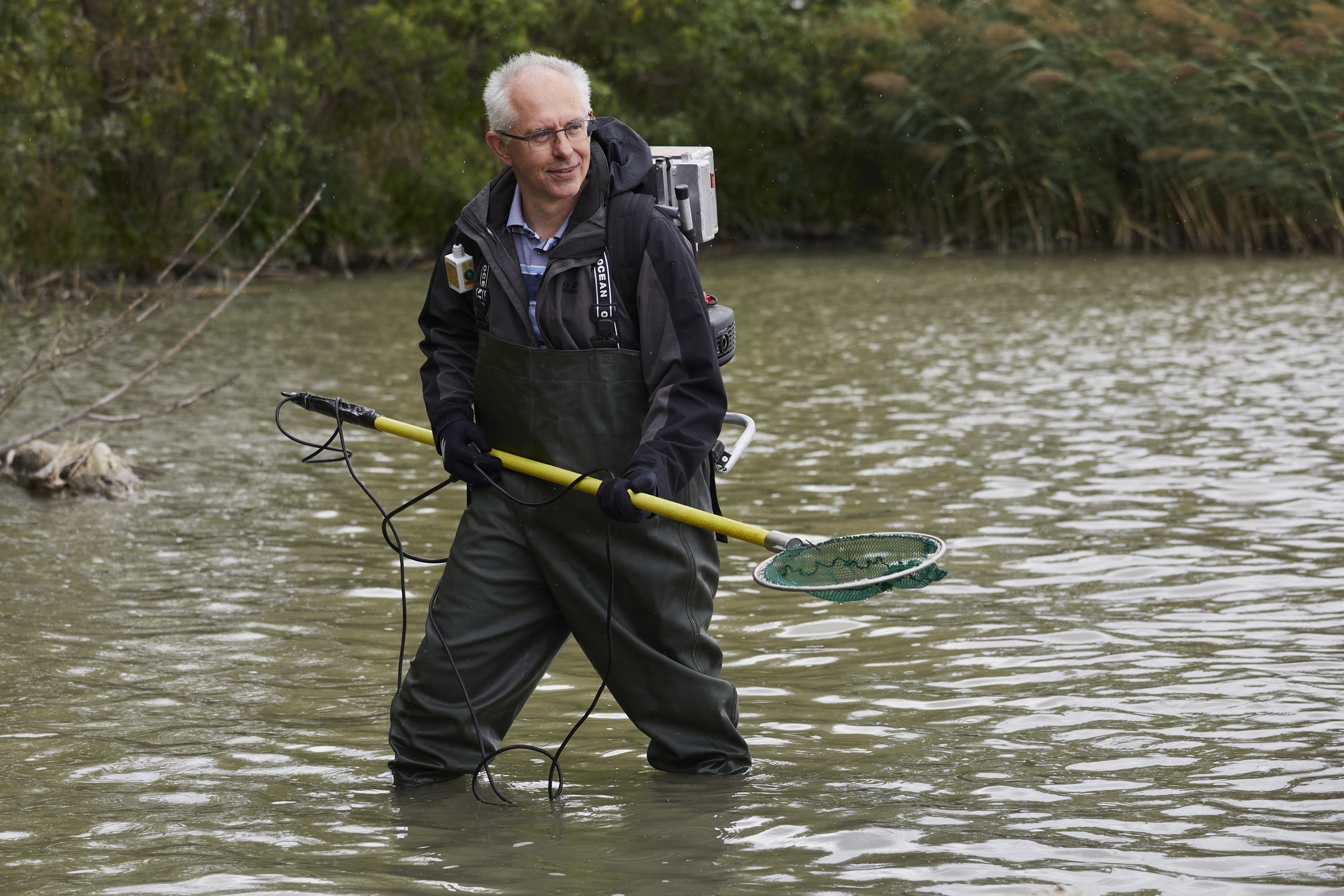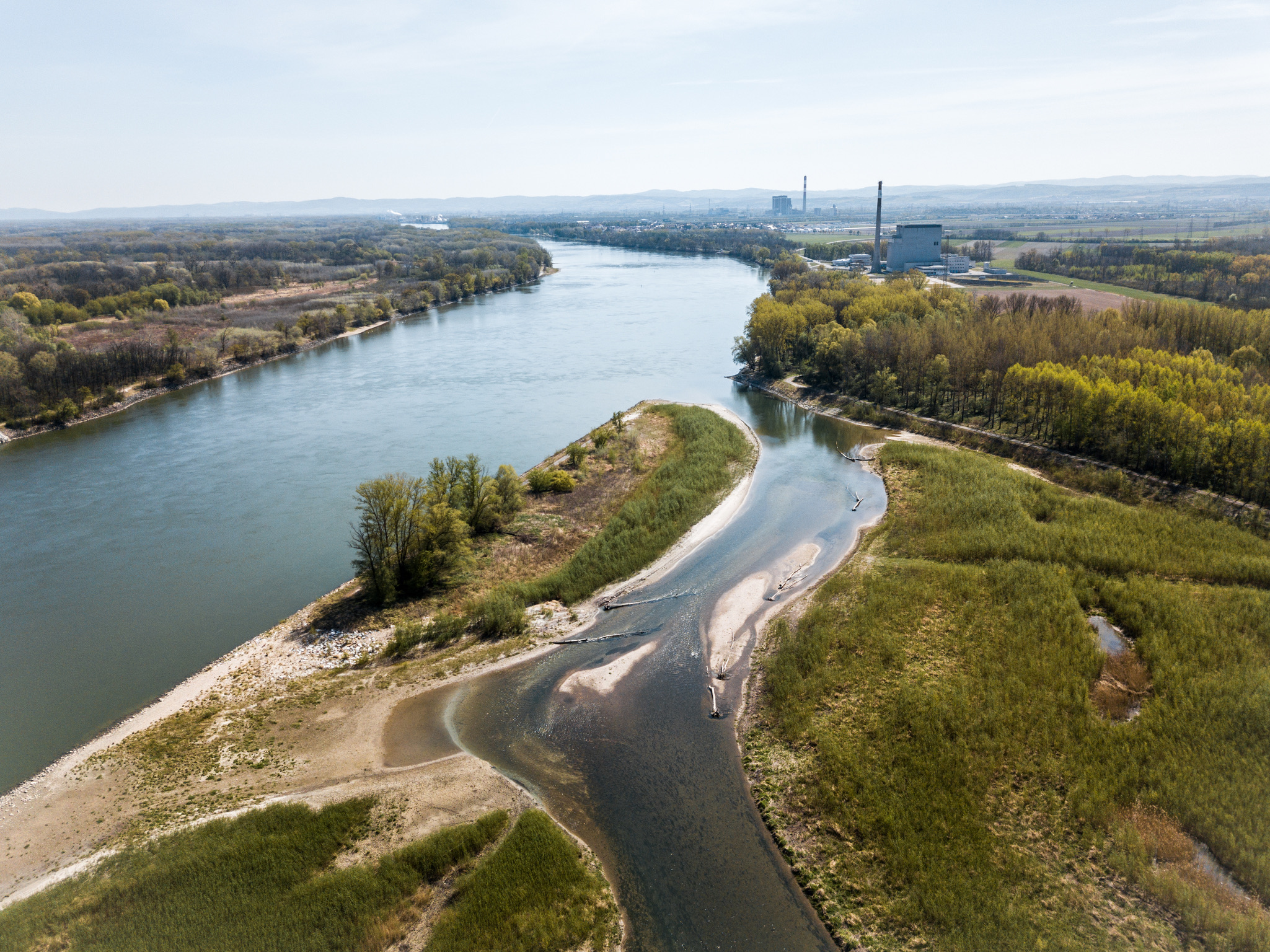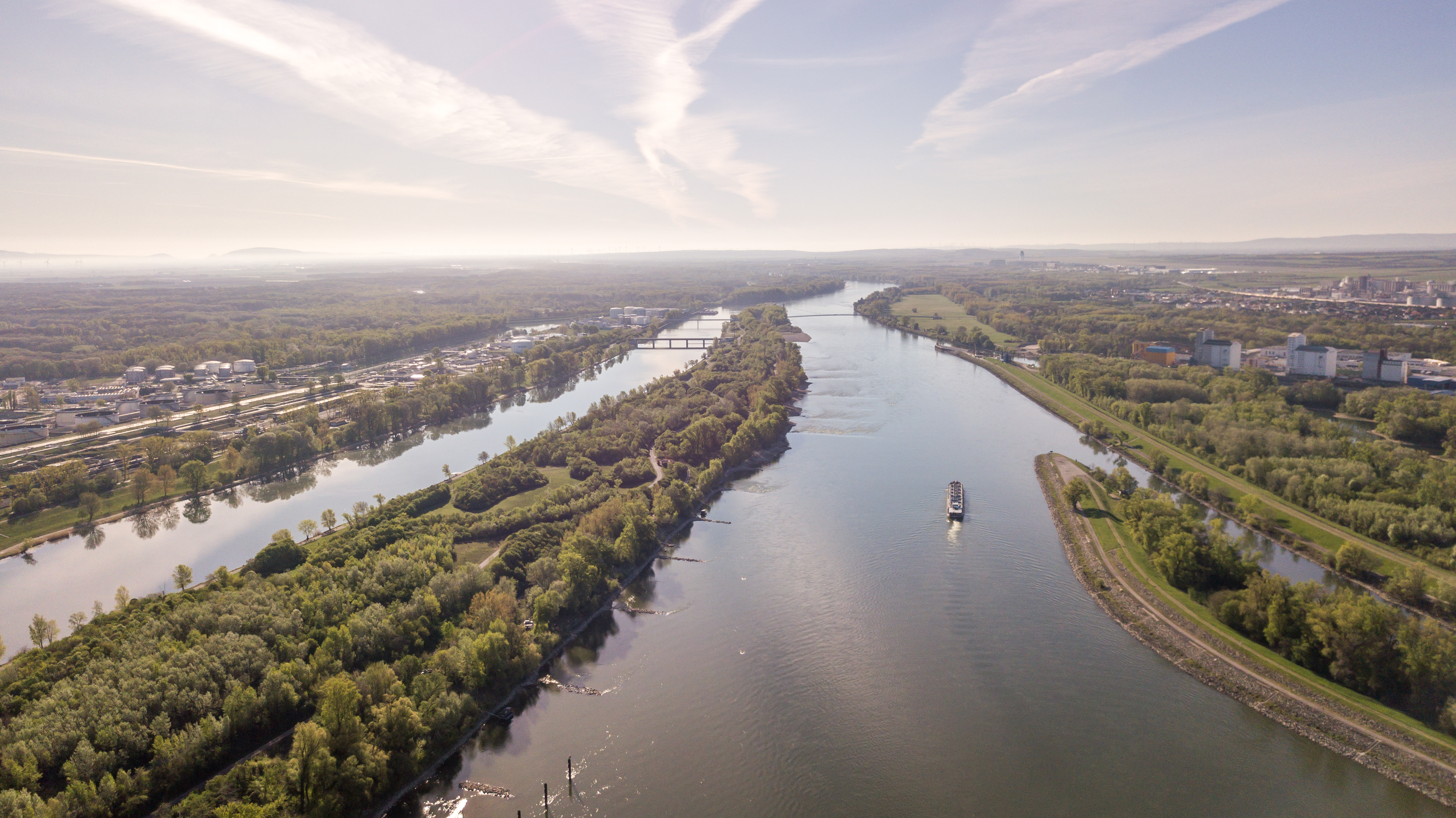CD Laboratory for Meta Ecosystem dynamics in riverine landscapes
Head of research unit
Commercial Partner
Duration
Thematic Cluster


This CD Laboratory systematically and comprehensively investigates the complex Danube ecosystem in order to understand the impact of human activities on the river's biodiversity and ecosystem services and to develop sustainable ecological measures.
Large rivers are important lifelines and have been and continue to be significantly influenced by human activities worldwide. River regulation and the development of hydropower, for example, change the flow and sediment dynamics, nutrient flows and much more, leading to a dramatic loss of habitats and biological diversity, such as for the fish fauna of the Danube. This also affects the ecosystem services provided by river landscapes and utilised by humans. Climate change will further accelerate and intensify these changes. A social consensus is therefore needed on the extent to which humans change ecosystems for utilisation while maintaining important ecological positions.
In order to reverse this negative trend and establish a broad consensus, a solid basis for decision-making must be created. To this end, the processes and dynamics driving ecosystem change must be scientifically analysed as comprehensively as possible, including the interactions with society. The meta-ecosystem concept is a holistic approach that combines impacts at different spatial scales by jointly analysing local habitat qualities, the connectivity between these spaces and the interaction with human activities, as well as the ecosystem services of riverine landscapes.
The CD Laboratory MERI focuses on the Austrian Danube and will combine data analyses with field observations and experiments. This will enable sustainable river management of the Danube and the development of ecologically and economically efficient measures to restore the functionality of the ecosystems.
In order to understand the impact of human activities on the temporal development of the Danube from the pristine system to its current state, available abiotic and biotic data along the Austrian Danube and its main tributaries will be analysed using new approaches. Patterns of fish migration will be analysed as one element of the river network. The investigations will also cover the functional and trophic (i.e. food-related) levels and analyse food web relationships in different river areas. The current and potential ecosystem services of the river, such as flood and nutrient retention, but also the availability of areas for recreation and leisure activities, will be systematically analysed. Based on fishing utilisation, for example, the CD Laboratory MERI can illustrate the effects on biotic interactions/relationships in the Danube and its tributaries.
Using models for future scenarios, approaches and possibilities for future river management will be tested in order to improve the multifunctionality of the Danube meta-ecosystem and preserve biodiversity.

Christian Doppler Forschungsgesellschaft
Boltzmanngasse 20/1/3 | 1090 Wien | Tel: +43 1 5042205 | Fax: +43 1 5042205-20 | office@cdg.ac.at

